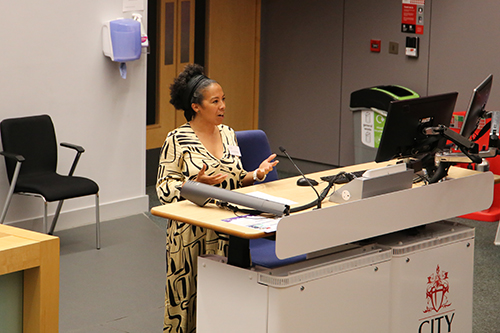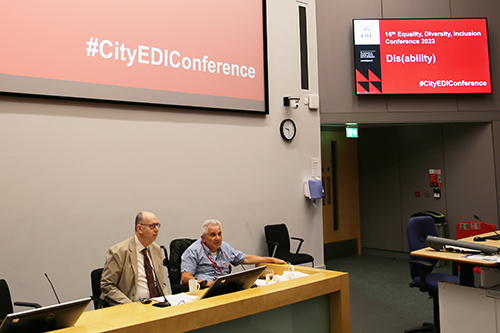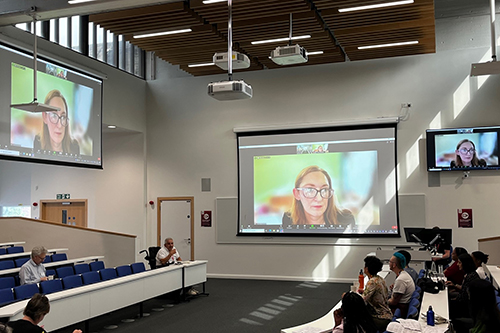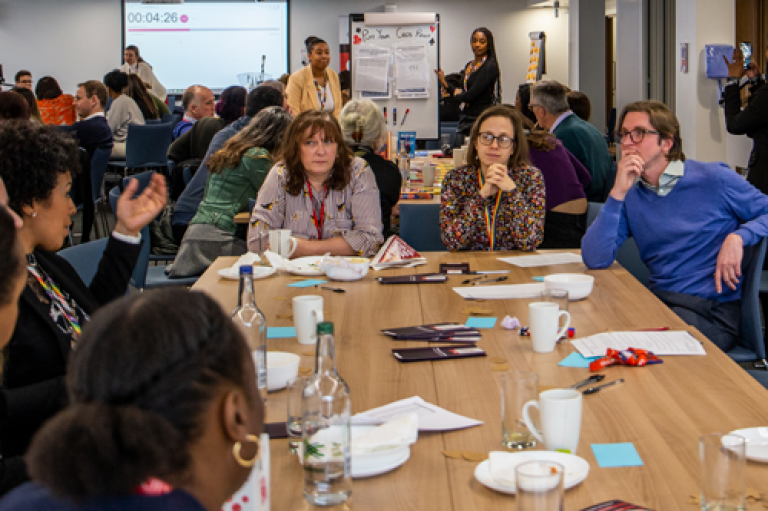EDI International Conference discusses disability in academia.
Making academia more accessible was the overarching theme of discussion at the 16th annual Equality, Diversity and Inclusion (EDI) International Conference, hosted this year by City, University of London.
The two-day conference, titled ‘Dis(ability)’ featured keynotes presentations and work streams around making the sector more inclusive towards protected characteristics – with particular focus on disability and neurodiversity.
An estimated 1.3 billion people – or one in six worldwide – experience significant disability according to recent World Health Organisation (WHO) statistics. This year’s EDI Conference aimed to explore the theme in the context of what it means to the workplace and in particular, academia. Parameters for accepted papers included those that determined the role of disability today in the human experience, promoted best practice for the protection of rights for those with disabilities, assessed opportunities for active inclusion and full participation of the disabled community, and explored how new technologies and digital tools might assist.
A highly impressive total of 72 papers were accepted for the conference, with 62 presented. These ranged from flexible work arrangements for managing menopause symptoms and interview barriers for autistic graduates, to the pandemic’s effects on mental health and effects of disability and chronic illness on gender-based violence.
Speakers and paper submissions came from a variety of institutions worldwide, including the West Indies, Dubai, Canada, Nigeria, United States and across Europe.

The event was opened by Professor Anthony Finkelstein, President of City, with welcome speeches from Dr Jessica Jones Nielsen, Assistant Vice-President (EDI-Race Equality), Professor Chris Rojek, Head of City’s Department of Sociology and Criminology and Professor Petros Iosifidis, Associate Dean EDI at City’s School of Policy & Global Affairs.

Keynote speeches were delivered by Professor David Ruebain, Pro-Vice Chancellor at University of Sussex, titled ‘Can the Law Deliver Inclusion?’, Professor Kate Sang from Heriot-Watt University on ‘Navigating the choppy waters of academia: the experiences of disabled and neurodivergent academics’, and Jamie Knight + Lion (Neurodivergent Duo) titled ‘Neurodiversity; Assistive Technologies’.
This year’s conference was organised and led by Professor Iosifidis, with the Office for Institutional Equity and Inclusion partnering and sponsoring three City colleagues.

Professor Iosifidis said he was inspired by the breadth of research presented by delegates.
“It was a pleasure to welcome a number of leading academics for this important annual conference,” he said.
“Each year, the EDI Conference examines the latest set of challenges facing academics and students, and attempts to offer best practice on how universities and higher education institutions can become more inclusive places to work and study.
“The sector is facing post-Covid challenges not just here in the UK but all across the world. However, now more than ever, standards in equality, diversity and inclusion must not be allowed to suffer or become an afterthought.
“My thanks go to colleagues and peers who presented their work, gave such valuable insights into the current state of play, and crucially offered potential solutions to the many challenges faced by disabled and neurodivergent researchers.
“I would also like to express my gratitude to professional services staff and student ambassadors for helping organise this event.”
Find out more about the EDI International Conference.
Read more about City's Office for Institutional Equity and Inclusion.



